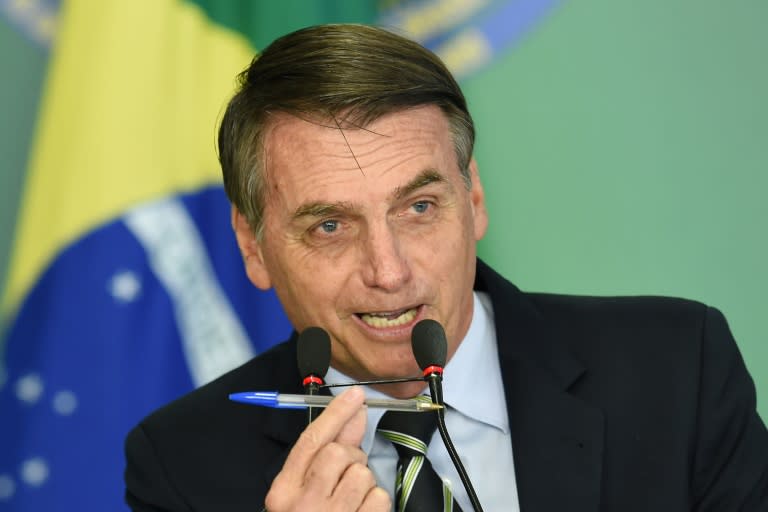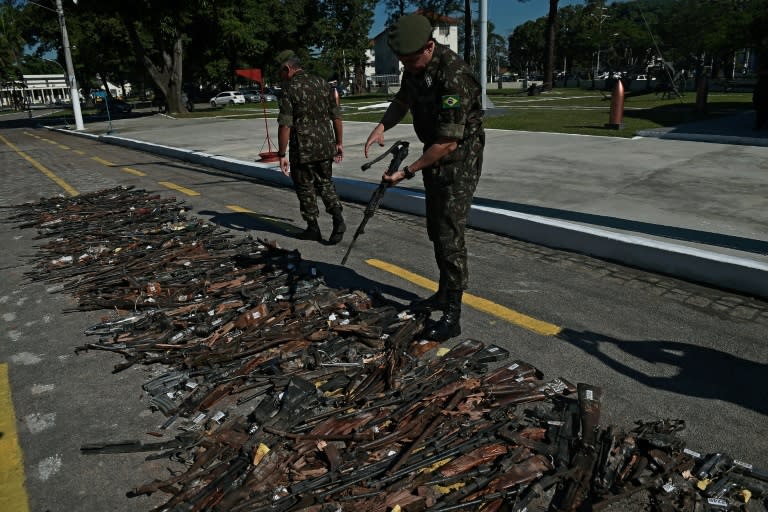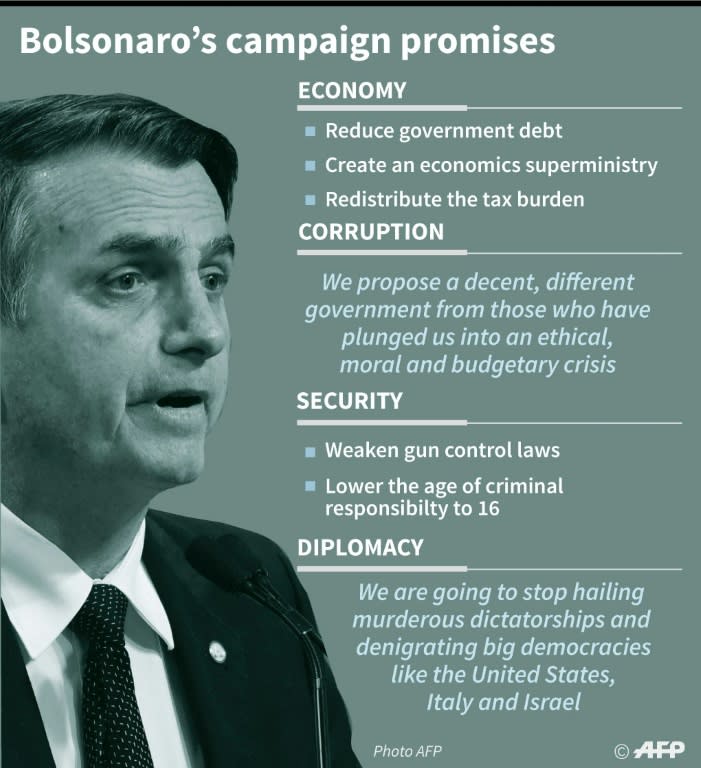Brazil's anti-crime president loosens gun laws
Brazil's far-right President Jair Bolsonaro rolled back restrictive gun ownership laws on Tuesday to make it easier for "good" citizens to use firearms against criminals, despite fears it could aggravate already staggering levels of deadly violence in his country. Keeping a core campaign promise, Bolsonaro signed a decree allowing residents in high-crime areas -- effectively the entire country -- to keep guns at home. "To guarantee the legitimate right of defense, as president, I am using this weapon," he said, indicating the pen he used to sign the executive order. Later he tweeted: "For a long time it was the State that decided who had the right or not to defend themselves, their family and their property. Today... we give Brazilian citizens the right to decide." Brazil recorded nearly 64,000 homicides in 2017, making it one of the most dangerous countries in the world outside of a war zone. According to a survey published last month by the Datafolha polling firm, 61 percent of Brazilians are opposed to generalized gun ownership, worrying it could usher in a Wild West mentality. Bolsonaro, a 63-year-old former army captain and longtime lawmaker, took office two weeks ago after being elected in October on hardline promises to crack down on crime and corruption. On the campaign trail, he often mimicked a pistol by extending the thumb and forefinger of his hand. - Armed citizens - His decree makes it much easier for adults over 25 with no criminal record to buy up to four guns and keep them at home. "I am very happy to be signing this decree, which is done so that many good people, good citizens, can from this moment ensure peace inside their homes," he said. The decree does not extend to carrying weapons -- concealed or otherwise -- in public, which remains restricted to police, public or private security personnel, and the military. What it does do is broaden the scope of who can legally possess firearms and make them more readily available. It notably applies to residents in areas with a homicide rate of more than 10 per 100,000 inhabitants -- which means every one of Brazil's 27 states, as Bolsonaro's chief of staff Onyx Lorenzoni confirmed. "This will apply to the entire country," Lorenzoni told Globo television. Bolsonaro said setting the homicide threshold gets around the "subjectivity" of a previous requirement under which a prospective gun owner needed to prove the "necessity" of acquiring a firearm. Brazil's overall homicide rate is 30.8 per 100,000 inhabitants, three times higher than the level that the United Nations classifies as endemic violence. The country, the biggest in Latin America, has a population of 210 million. - 'Violence will fall' - Bolsonaro said the decree he signed was supported by a 2005 referendum in which 64 percent of Brazilians voted against a total ban on gun sales. "The people decided to buy guns and ammunition and we cannot deprive those who wanted that at that time," he said, criticizing firearm ownership restrictions brought in under former left-wing president Luiz Inacio Lula da Silva, who is now in prison for corruption. A group that monitors violence, the Forum for Public Security, echoed the concern of many in Brazil by saying Bolsonaro's measure risks "increasing insecurity." It said that several studies have shown that an increase in the number of firearms in circulation correlated to a jump in the number of gun-related deaths. But Bolsonaro does not agree. In a television interview last week, he said that, with less restrictive gun laws, "you can be sure that violence will fall." Silvia Ramos, an analyst at the Security and Citizenship Research Center in Sao Paulo, told AFP that Bolsonaro's decree was "a very troubling move." "In a way, he is delegating public security to citizens. With this decree, he is saying, 'Go on, buy guns, and after, don't complain if murders increase... you have to use your gun!'," she said. "I think the government is responding to a very radicalized sector of the population, and is confused over freedom and security."





